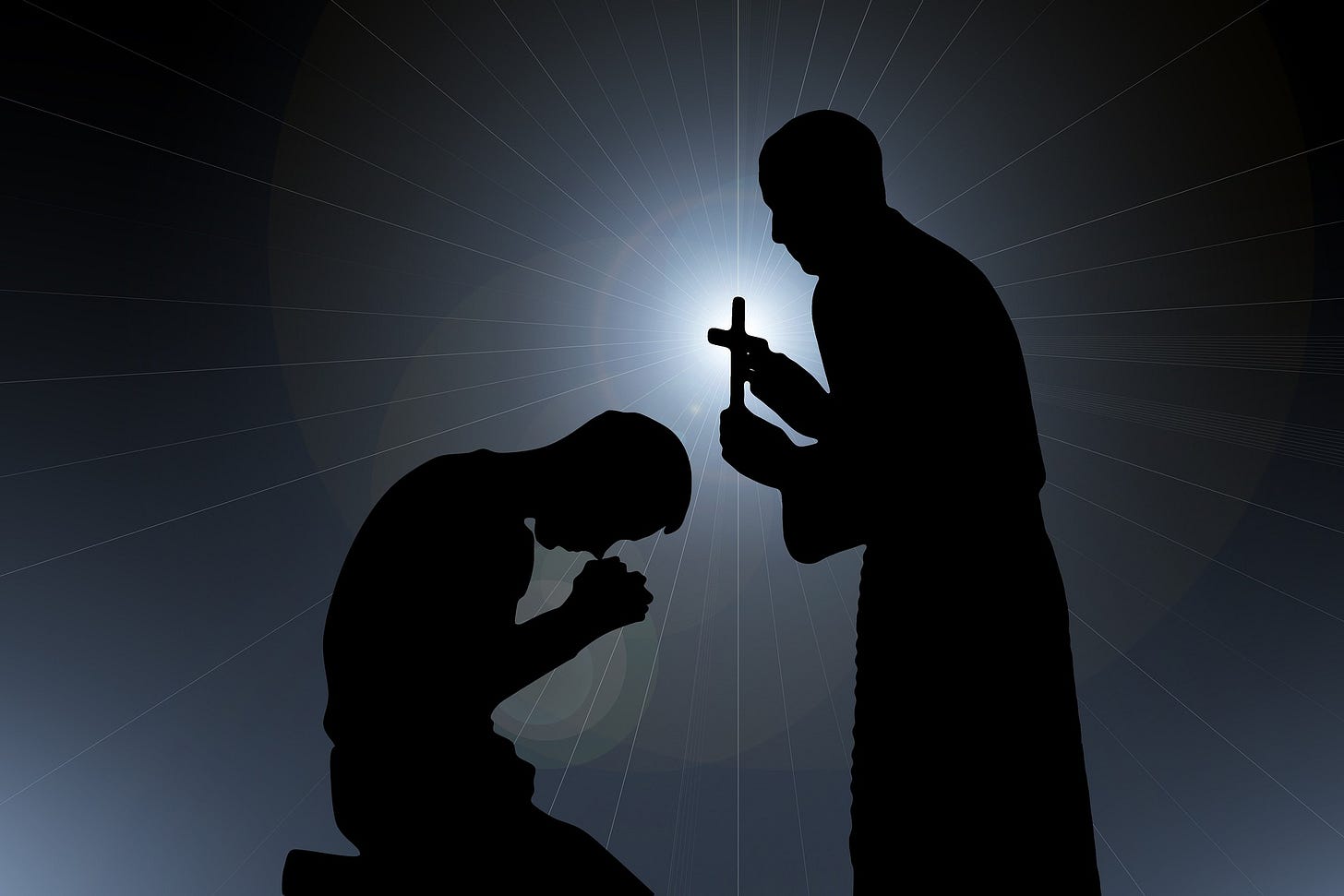Are we missing the priestly role of Christ?
Let's rediscover a good theology of priesthood.
I preached recently from Hebrews 5:1-10, a beautiful passage that describes Jesus being the great High Priest. It's a wonderful passage that compares the Levitical priests to Jesus and demonstrates why he is the High Priest par excellence. He exceeded the Levitical priests in function because he was the source of Salvation that was eternal. He exceeded them as persons because he did not let the suffering and brokenness of humanity devolve into despair, into sin, and loss of faith. Jesus's pain and struggle taught him obedience, not disobedience. Finally, he exceeded the Levitical high priest in his appointment. The appointment was not just to priesthood but to sonship (quoting Ps 2:7) and that appointment was not for a lifetime, but was forever, according to the order of Melchizedek.
One of the authors I used in my sermon prep made this suggestion:
The book of Hebrews draws imagery from the ritual life of the Jewish temple. Jesus is the high priest who offers sacrifices on behalf of his people and mediates between God and humanity. While these ideas have profoundly influenced Catholic and Orthodox theology, Protestants have more typically turned to the language of covenant: Christian worship and ministry should proclaim God’s gracious promises and call forth our obedient response. Of the three offices traditionally ascribed by the church to Christ—prophet, priest, and king—it is the first that resonates most fully with us, not Hebrews’ language of priestly sacrifice. {1}
In my tradition (Baptist), the role of the priest has very little discussion within its theological tradition. We're greatly concerned about the idea of "Priesthood of all Believers", and I genuinely agree to that. I DO NOT have to go to someone to confess my sins. I DO NOT have to go to someone to pray for me. I DO NOT have to go to someone to help me understand Jesus or even to accept Christ as Savior.
But...
As much as I want to go to Jesus in times of suffering and weakness, when I am hurting physically and emotionally, or on the edge of telling God to leave me alone because of the events of life, what I really want is someone to hold my hand, give me a hug, encourage me and to walk me back from the ledge. Literally. Not abstractly. Literally
I need people!
When my mom died last Christmas Eve, I needed people who had lost a mom to walk me through the first year. I needed someone who would hold me while I cried my eyes out. I needed someone to be strong for me as I preached her funeral. I needed people to pray for me in my presence.
I needed a physical priest.
And I don't think we protestants want to give up the role of the priest, just the requirement that the priest is the ONLY one who intercede, the ONLY one who can pray and teach and administer the sacraments.
I know, the main functions of the priest are wrapped up into the role of the pastor. But the role of the pastor has been so celebrity-ized these days that, in many cases, on a few have access to them. Maybe in a world filled with pandemics, brokenness, pain and suffering, we need to invest time in teaching our church to be a priest, and training our members to be priests. So many people felt they don't need church and thus don't have a priestly figure in their friends list.
We need to train our people to truly live out the belief of the priesthood of all believers. Protestants need to rediscover a good theology of priesthood.
Notes
{1} Bartlett, David L.; Taylor, Barbara Brown. Feasting on the Word: Year B, Volume 4: Season after Pentecost 2 (Propers 17-Reign of Christ) (Feasting on the Word: Year B volume) (Kindle Locations 6538-6539). Presbyterian Publishing Corporation. Kindle Edition.


